
The field data collection in key migrant communities in the South-East and South-South of Nigeria was an experience that could best be illustrated in this brief essay. Household survey and FDIs (and IDIs) were conducted in eight communities within a period of four weeks.
Within the South-south, the first migrant community visited was Bogobiri community in Calabar South Local Government Area of Cross Rivers State, where we met a 68 years old Mallam Muktar Ahmed from Kebbi State in North-Western Nigeria. He is a farmer and trader that has lived in Bogobiri Community for a period of 42 years. He buys fish and grains, mostly maize, beans and millet from Kebbi State and sells them in Calabar. He also buys crayfish and palm oil from Calabar and sells them in Kebbi State. Mallam Muktar married and raised his children in Bogobiri community within his 42 years of stay and his children have all married and settled in Calabar. He has no intention of returning to Kebbi State. He is now a permanent resident migrant in Bogobiri Community of Calabar. This, according to him, is so because Calabar is peaceful, has comfortable atmospheric condition and the people are very hospitable. This resident migrant proceeded to lead us to the ‘Galadima’ (community head) of the community and later served as our guide throughout the exercise in Gbogobiri community.
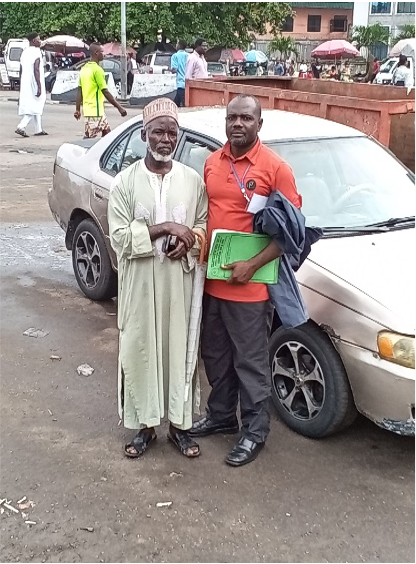
Figure 1: Mallam Muktar Ahmed, the first contact and guide in Bogobiri Community, in Calabar South Local Government Area of Cross Rivers State
In the south-south of Nigeria, during the wet month of July, rainfall is experienced almost every day. However, this did not prevent us from ‘hitting’ the field every day. On this particular day, we had to interview a young lady, Miss Blessing Oibe, outside her little store to avoid interruptions from visitors. Miss Oibe is a migrant from Makurdi, Benue State in the north central region of Nigeria. She has lived in Bogobiri Community for 7 years. She is a petty trader but also sells grains and groceries to support her studies at the University of Calabar.
Figure 2: A Rainy Day Interview in Bogobiri, Calabar South LGA.
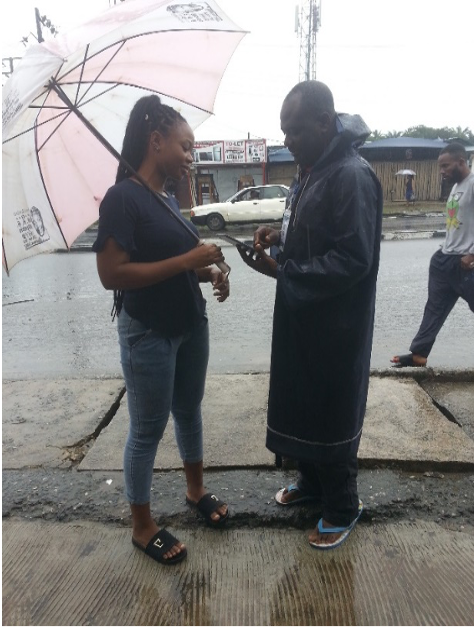
We had In–Depth interview with Sarki Garba Lawal, the Leader of Hausa Fulani/Muslim Community in Cross Rivers State. Sarki Garba Lawalis a business man and was born in Cross Rivers State. His parents migrated from Fika, Yobe State in north east Nigeria to Bogobiri Community for better trading opportunities. The Sarki displayed a good knowledge of climate change. Below is an extract from his interview.
“The options available to help mitigate the impacts of climate/environmental changes include planting of trees, use of improved or hybridized varieties to improve crop yield, use of fertilizer, irrigation, migration to areas with more favourable weather, minimization of release of carbon monoxide to the atmosphere, amongst others”-
Sarki Garba Lawal, the Leader of Hausa Fulani/Muslim Community in Cross Rivers State, Nigeria.
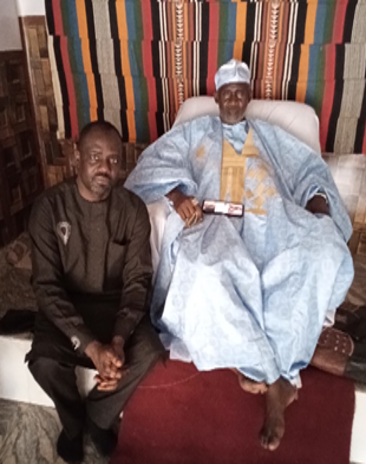
In Benin City, Edo State (south south region of Nigeria), we had an In-Debt interview with Sarki Alhaji Adamu Isa, leader of Hausa/Fulani/Muslim Community.
“Climate change has significant impact on cattle breeders in the North, so they migrate down south to places like Benin City in the South for adequate pasture for their animals/livestock. Environmental issues such as adequate rainfall, good weather conditions, and fertile soils also contribute to the movement of people from the North to Benin City”– Sarki Alhaji Adamu Isa
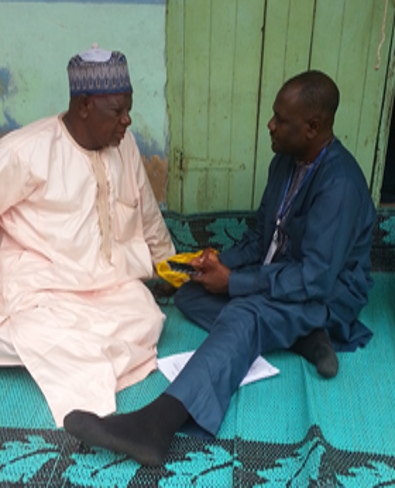
Figure 4: Sarki Alhaji Adamu Isa, Leader of Hausa/Fulani/Muslim Community in Benin City, Edo State being interviewed
Mr Salisu, whose parents are from Sokoto state, in the northern part of the country, has been living in Calabar for over 40 years. He does not intend to relocate to Sokoto because Sokoto State’s hot weather is too harsh for his skin. This was an interesting angle that he added to our interview. Mr Salisu believes that the recent increase in the environmental temperature is due to climate change.
Figure 5: This migrant from Sokoto State in North-Western Nigeria has lived all his life in Calabar with no intention of relocating back to his original home
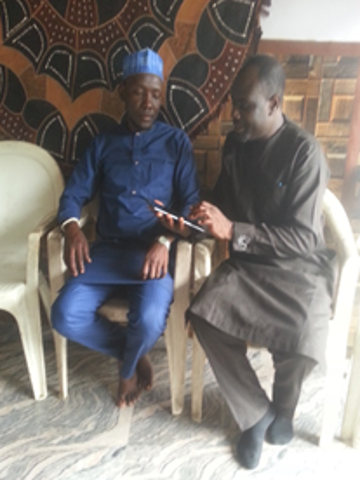
The first migrant community visited in the south east of Nigeria was Mgbakwu community in Awka North Local Government Area of Anambra State. The members of this community are involved in farming and trading activities. Most of the household members migrate from the community in search of white-collar jobs or better education. One of the Chiefs in this community, Chief Anayo, a 60 years old man, who was glad that the research team choose his community for the study, narrated how out-migration of community members has assisted households in the community financially. Chief Anayo provided us a guide that aided our navigation through the community during the exercise.
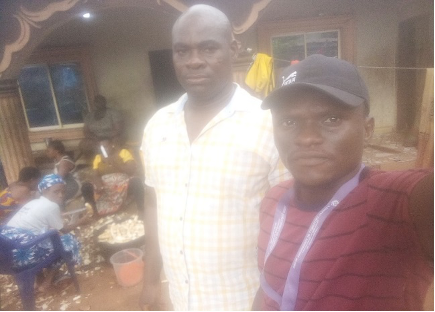
Figure 6: Chief Anayo of Mgbakwu Community, in Awka North Local Government Area of Anambra State with his interviewer
Chief Agwo, an 85 years old indigene of Ehugbo community in Afikpo North Local Government Area of Ebonyi State was of the opinion that poor agricultural yield due to variability in rainfall prompts out-migration of community members in search of better means of livelihood, and the out migrants contribute to the overpopulation issues in other communities. Chief Agwo provided us with Mr Mike, the guide who assisted us in navigating through the community. Interview of respondents in the study area was less stressful due to the help of our guide, Mr Mike.
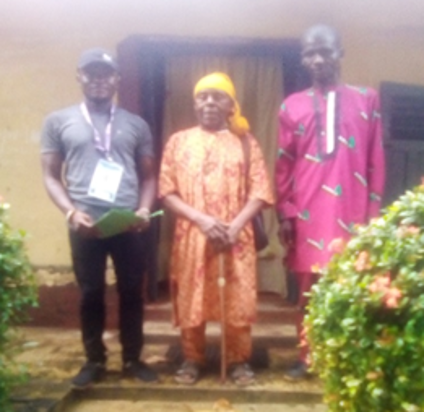
Additionally, Chief Agwo offered free accommodation to Mr Chukwudi during the field work and Mike gave him a ride in his vehicle when he needed to visit respondents of Aba in Abia State.
In conclusion, the typical Nigerian hospitality showed through these migrants and community leaders. The host communities provided a peaceful environment for migrants, irrespective of their origin, to thrive. This seems contrary to the negative stories often circulated about insecurity in the country.
Authors

Dr. Julia O. Eichie
FUT-MINNA, Nigeria
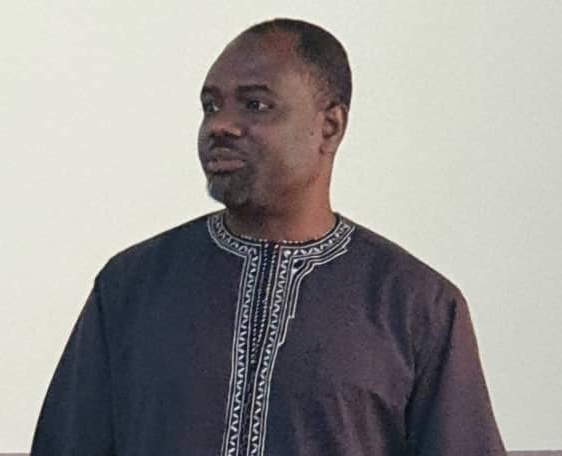
Aiyejina Williams
FUT-MINNA, Nigeria
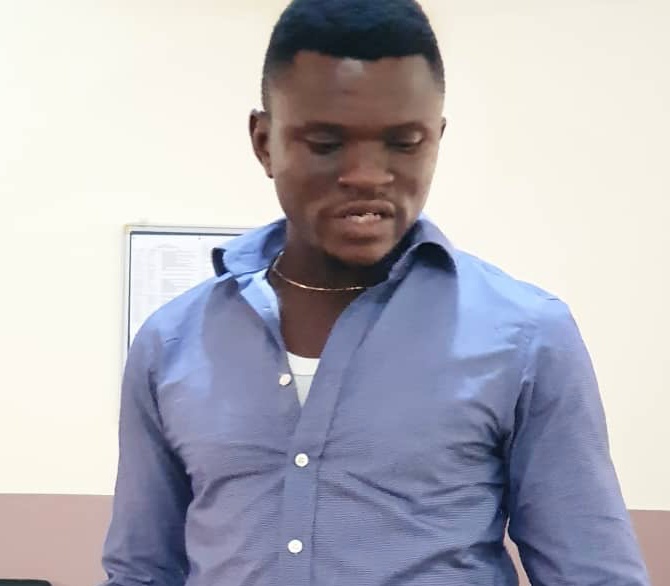
Chukwudi Obiora
FUT-MINNA, Nigeria
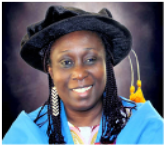
Prof. A. A. Okhimamhe
FUT-MINNA, Nigeria